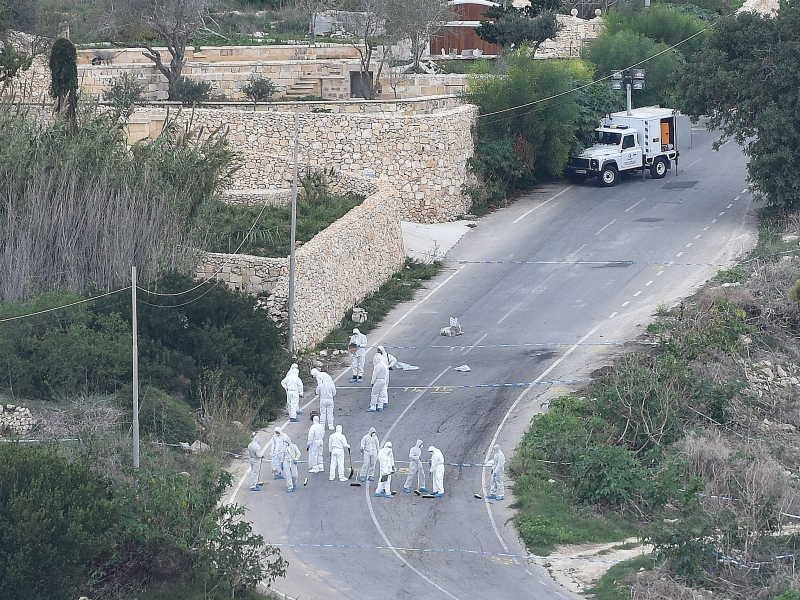VATICAN CITY (AP) — Pope Francis joined the chorus of shock over the car bomb slaying of Maltese investigative journalist Daphne Caruana Galizia, sending a note expressing his condolences to the overwhelmingly Catholic island nation.
Popes often send telegrams of condolences after deadly natural disasters or the deaths of prominent world leaders. Rarely does the death of a private citizen elicit a formal letter of condolence signed by the Vatican secretary of state in the pope’s name.
In the telegram sent Friday (Oct. 20), Francis said he was “saddened by the tragic death” of Caruana Galizia and was praying for her family, the Maltese people and the nation as a whole “at this difficult moment.”
It was addressed to Valletta Archbishop Charles Scicluna, a longtime Vatican official before he was made a bishop in his homeland in 2012. Scicluna has condemned the “brutal murder” and appealed for “a unified resolve to promote true democracy.”
Malta has been stunned by the Oct. 16 slaying of Caruana Galizia, an anti-corruption investigative reporter whose inquests probed the business dealings of Malta’s leading politicians.
Prime Minister Joseph Muscat — a frequent target of Caruana Galizia — is facing pressure to declare a national day of mourning as well as to ensure an independent and thorough investigation. A government spokesman said any decision about declaring a day of mourning was dependent on plans for the funeral, which still hadn’t been set pending the outcome of an autopsy.
The 53-year-old journalist’s three sons have urged Muscat to resign, saying he should take political responsibility for “failing to uphold our fundamental freedoms” by not rooting out the corruption that their mother helped uncover.
Malta’s reputation as a tax haven, its cozy links with nearby lawless Libya and offshore holdings of government officials uncovered by the Panama Papers leak were just some of the topics that Caruana Galizia had dug into before her death.
Muscat has vowed that no stone will be left unturned, and Home Minister Michael Farrugia told The Malta Independent on Friday that the police force had been given a “blank check to do whatever it takes” to solve the crime.
FBI and Dutch forensic experts are in Malta to assist, but Police Commissioner Lawrence Cutajar has insisted the investigation is the responsibility of the Maltese police.
There have been six car bombings in Malta over the past two years, including Caruana Galizia’s. None have been solved.
The road where the bomb detonated Oct. 16 was cleared of all the evidence and reopened to traffic.
Former Prime Minister Lawrence Gonzi called on the government to do more quickly and send a strong message.
“It has been four days since her murder and those candles we lit up will soon burn out,” he told The Malta Independent. “The more time passes, the more we forget.”





